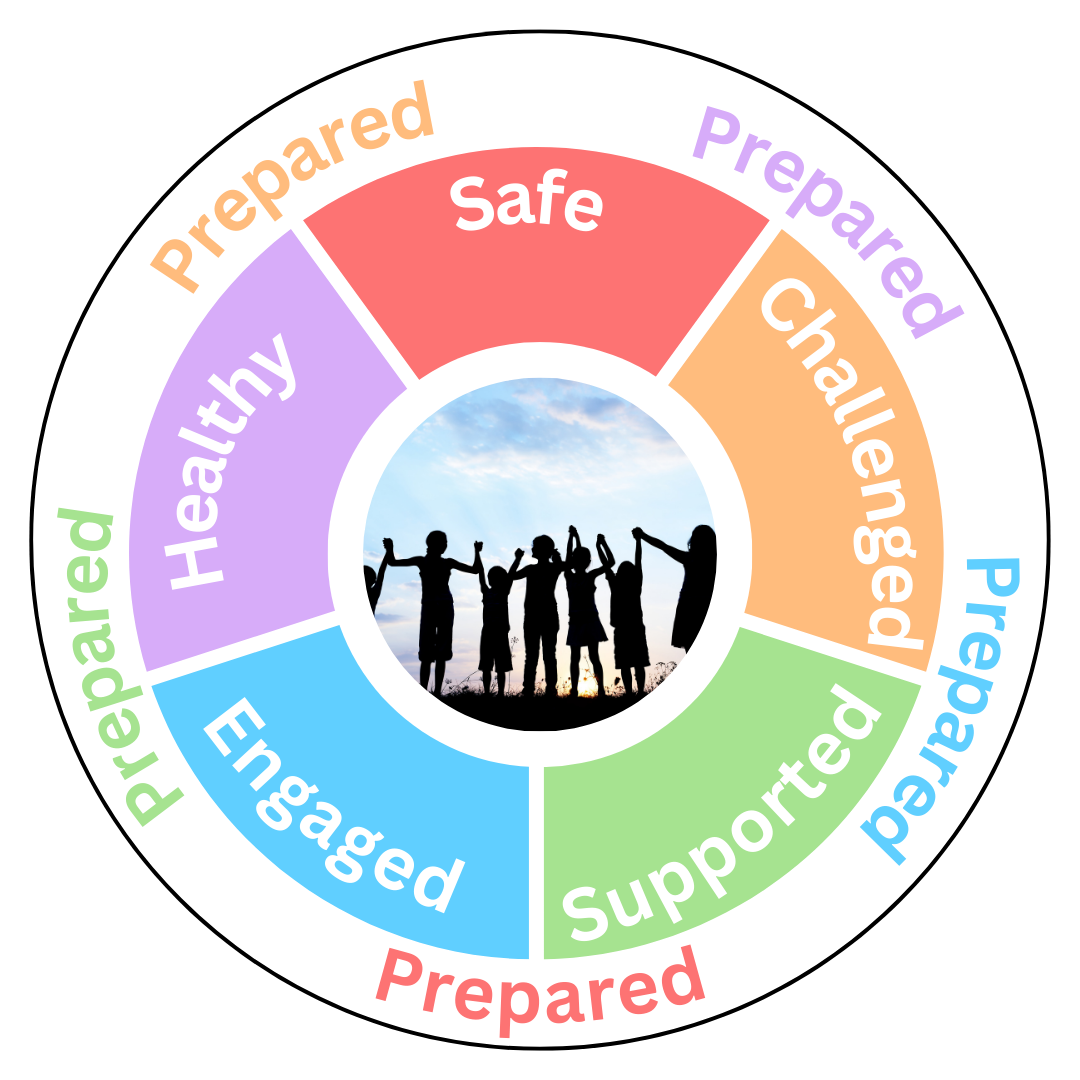
In partnership with educators, administrators, parents, students, and educational organizations, the Maine Department of Education has identified a framework of interconnected elements to help ensure that all students have opportunities to develop the skills and knowledge to become engaged Maine citizens who will innovate and work to lead Maine’s future.
The tenets of this Whole Student Approach support a healthy, engaged, supported, challenged, and safe student. These tenets form the foundational pillars for fostering a generation of prepared lifelong learners through interdisciplinary instruction. The purpose of the Whole-Student Approach is to support schools and SAUs in creating cohesive and inclusive teaching and learning cultures to improve student achievement and readiness.
Healthy
A healthy student embodies physical, mental, and emotional well-being, ensuring a robust foundation for effective learning.
Engaging
Engagement in diverse subjects and activities is crucial, as it sparks curiosity and a love for learning.
Supportive
Supportive environments, both academically and emotionally, encourage students to explore their potential and take risks.
Challenging
Challenge, when appropriately tailored, stimulates intellectual growth and resilience.
Safe
Safety, both physically and emotionally, provides a secure space for exploration and experimentation.